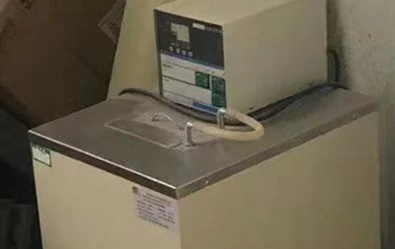loading...
- No. 9, Xingyuan South Street, Dongwaihuan Road, Zaoqiang County, Hengshui, Hebei, China
- admin@zjcomposites.com
- +86 15097380338
- Welcome to visit our website!
Understanding the Benefits and Functionality of Water Softeners for Your Home
Understanding Water Softeners Benefits, Types, and Maintenance
Water hardness is a common issue in many households, causing various problems that can affect everything from the efficiency of appliances to the quality of everyday tasks like cleaning and bathing. This is where a water softener comes into play—a device designed to reduce the hardness of water, making it more manageable and beneficial for everyday use.
What is Hard Water?
Hard water contains a high concentration of minerals, primarily calcium and magnesium. When hard water flows through your plumbing system, these minerals can accumulate, leading to scale buildup in pipes, water heaters, and appliances. This not only shortens their lifespan but also reduces their efficiency, resulting in higher energy bills and increased maintenance costs. Moreover, hard water can make soaps and detergents less effective, leaving residues on skin and surfaces.
Benefits of Using a Water Softener
Investing in a water softener comes with several advantages
2. Better Cleaning Power Softened water can enhance the effectiveness of soaps and detergents, allowing you to use less while achieving better results in washing clothes and dishes or cleaning surfaces in your home.
3. Smoother Skin and Hair Soft water is gentler on the skin and hair, reducing dryness and irritation. Many individuals notice significant improvements in their skin condition and hair texture after transitioning to softened water.
4. Reduced Soap Scum Soft water minimizes the presence of soap scum, which can be a persistent problem in showers, sinks, and tubs. This leads to less time spent cleaning and maintaining a fresh appearance in bathrooms and kitchens.
5. No More Stains Hard water can leave stains on dishes, glassware, and faucets. Softening the water eliminates these unsightly marks, keeping your home looking cleaner and more polished.
water softener

Types of Water Softeners
There are several types of water softeners available on the market, each with its unique methods of removing hardness
1. Ion Exchange Softeners These are the most common type. They use resin beads charged with sodium ions. As hard water passes through the resin, calcium and magnesium ions are exchanged for sodium ions, effectively softening the water.
2. Salt-Free Softeners These systems do not remove hardness minerals but instead change their chemical structure, preventing them from bonding to surfaces. This can reduce scale buildup, but they might not be as effective as traditional salt-based systems.
3. Reverse Osmosis Systems While primarily known for purifying water, reverse osmosis systems can also address hardness. They filter out many impurities, including minerals responsible for water hardness, resulting in very soft water.
4. Magnetic and Electronic Softeners These systems claim to use magnets or electronic fields to alter the properties of hard water, preventing mineral buildup. However, their effectiveness is often debated.
Maintenance of Water Softeners
Proper maintenance of your water softener is crucial for optimal performance. Here are some essential tips
- Regular Salt Checks For ion exchange systems, check the salt levels periodically and refill as needed to maintain efficient operation. - Cleaning and Resin Replacement The resin beads in ion exchange softeners should be cleaned or replaced approximately every five years, depending on water usage and hardness levels. - Inspect and Test Regularly inspect your system for leaks or malfunctions and test the water hardness to ensure the softener is working effectively.
Conclusion
Water softeners are an invaluable investment for many households struggling with hard water issues. With benefits ranging from improved appliance efficiency to better skin and hair quality, their advantages are hard to overlook. By understanding the types of water softeners available and maintaining them properly, you can enjoy all the perks of softened water, leading to a more comfortable and efficient home environment.
-
The Rise of FRP Profiles: Strong, Lightweight, and Built to LastNewsJul.14,2025
-
SMC Panel Tanks: A Modern Water Storage Solution for All EnvironmentsNewsJul.14,2025
-
GRP Grating: A Modern Solution for Safe and Durable Access SystemsNewsJul.14,2025
-
Galvanized Steel Water Tanks: Durable, Reliable, and Ready for UseNewsJul.14,2025
-
FRP Mini Mesh Grating: The Safer, Smarter Flooring SolutionNewsJul.14,2025
-
Exploring FRP Vessels: Durable Solutions for Modern Fluid HandlingNewsJul.14,2025
-
GRP Structures: The Future of Lightweight, High-Performance EngineeringNewsJun.20,2025
